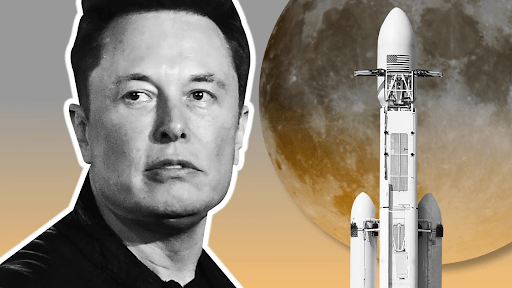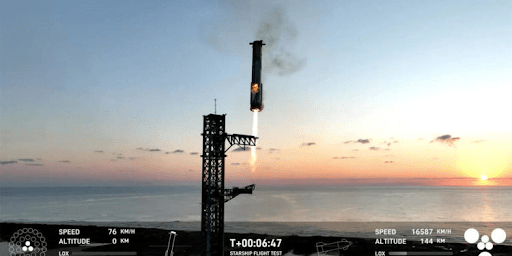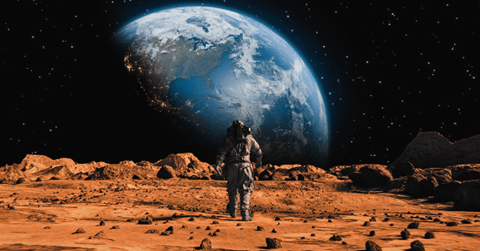SpaceX has consistently pushed the boundaries of space exploration, and their latest feat—capturing a descending rocket booster using robotic arms for the first time—is a testament to their innovative spirit.

Our Space Explorers Workshops at Space India similarly provide dynamic, experiential learning opportunities that highlight the wonders of astronomy and space science! These tailored courses aim to break down difficult subjects—yes, even rocket science—into ideas that are easy for anybody to understand. Our sessions, which can be held at community centres, educational institutions, or schools, make learning about the universe thrilling.
Through captivating group activities and engaging sessions, we foster a laid-back, joyful environment where people from various backgrounds may learn about the secrets of space.
Turning to the fascinating news..
This historic achievement, accomplished during the 5th test flight of their Starship rocket in October 2024, marked a significant milestone in the quest for more affordable and sustainable space travel. The Starship upper stage successfully reentered the atmosphere over the Indian Ocean, enduring extreme temperatures of nearly 3,000 degrees Fahrenheit. Despite this harsh environment, the spacecraft remained relatively intact, thanks to its advanced heat shield and steering fins.
The robotic arms, nicknamed as “chopsticks,” were mounted on the launch tower and successfully snagged the returning booster mid-air. This breakthrough has profound implications for the future of space exploration, opening doors to a new era of possibilities.

Reduced Launch Costs and Increased Accessibility
One of the most immediate benefits of this technology is a significant reduction in launch costs. By capturing and reusing rockets, SpaceX can minimize the need for costly new hardware. This makes space exploration more accessible, enabling more frequent satellite deployments, scientific research missions, and even commercial ventures like space tourism.
Sustainability and Environmental Responsibility
SpaceX’s robotic arm technology also aligns with growing concerns about the environmental impact of space exploration. By reusing rockets, the company can reduce the number of debris and emissions associated with launches. This commitment to sustainability is crucial as the industry continues to expand and the demand for space-based services grows.
Ambitious Missions and Interplanetary Exploration
The success of SpaceX’s robotic arm capture will pave the way for more ambitious missions, including crewed journeys to the Moon and Mars. By reducing launch costs and improving reliability, this technology makes these once-distant goals more attainable.

Challenges and Future Directions
Despite this remarkable achievement, SpaceX faced several challenges in refining its rocket recovery technology. Ensuring the robotic arms function flawlessly under various weather conditions, such as wind and rain, required continuous development. Additionally, the precise timing and coordination necessary for successful mid-air catches demanded ongoing advancements in engineering and control systems.
As SpaceX continues to refine its technology, it is also important to consider the broader environmental implications of space exploration. While the company’s efforts to reduce launch costs and minimize emissions are a positive step, there is a need for ongoing dialogue and research to address the long-term sustainability of space activities.
A New Era of Space Exploration
SpaceX’s success with robotic arm captures is not just a technological marvel; it signifies a transformative moment for space exploration. By overcoming challenges and prioritizing sustainability, it is not only paving the way for more efficient and affordable space missions but also inspiring a new generation of explorers to reach for the stars. The journey from launch to catch is just the beginning of an exciting new chapter in space exploration.
—
If you like the blog, enrol your school or yourself (k-12 student) in our School Programs or Online Programs, call us at +91-74020 74020 or write to us for any query: getintouch@space-india.com

